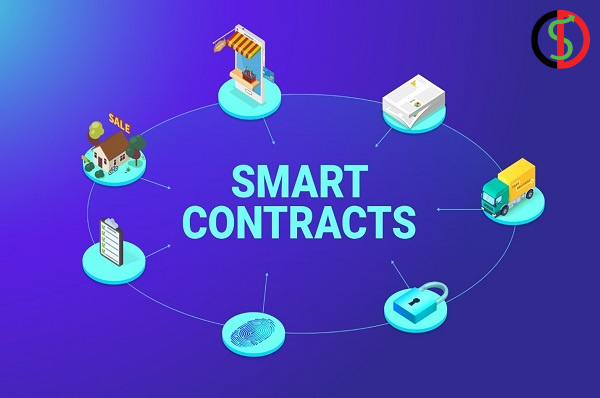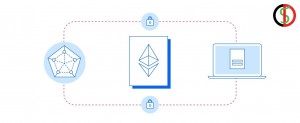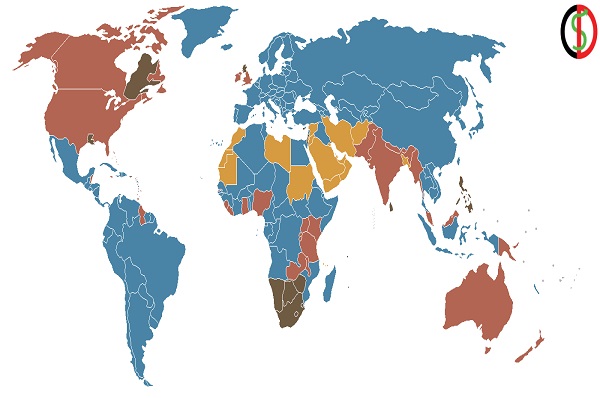Introduction
The use of smart contracts enables cryptocurrencies to provide a great deal more than just a function as a kind of digital money that enables the movement of cash from one location to another. Using blockchains and smart contracts, it is possible to construct full decentralized financial (DeFi) systems that are capable of functioning independently and do not need a central governing body to do so.
What precisely are “smart contracts”?
The term “smart contracts” refers to computer applications that have been stored on the blockchain and are designed to run automatically when specific criteria are satisfied. They do this by defining and enforcing the terms of the contract with the help of code. When a smart contract is put into use, it begins to operate on its own and does not need the involvement of a third party to guarantee that the terms of the contract are met.
Whenever a smart contract is made, a copy of it is stored on a distributed ledger called a blockchain. The blockchain is a decentralized public ledger that keeps track of all of the activities that occur with a cryptocurrency. Blockchains used by cryptocurrencies that support smart contracts are able to not only store but also execute the smart contracts themselves.
The advantages of using smart contracts
Blockchains that are used for smart contracts provide a number of advantages, including increased quickness, effectiveness, reliability, confidence, openness, safety, and cost savings.
Quickness, effectiveness, and pinpoint precision
As soon as one of the conditions is satisfied, the agreement is instantly put into effect. Since smart contracts are electronic and computerized, there is no need to handle any paper, and there is also no need to spend time resolving mistakes, as is often the case when papers are filled out manually.
Both trust and openness are essential.
There is no need to examine if data has been manipulated for personal profit since there is no third party engaged, and since encoded logs of activities are shared among all participants.
Security
Because the data of transactions in a blockchain are encoded, it is very difficult to get into them. In addition, in a decentralized ledger, each item is tied to the record that came before it and the one that will come after it. This means that hackers would need to modify the whole chain in order to change a particular document.
Efficiencies
The need of middlemen to conduct transactions, as well as the accompanying slowdowns and costs, are rendered unnecessary by the implementation of smart contracts.
Uses and Cases for Smart Contracts
dApps
One single kind of transaction may be utilized for a single smart contract at any one time. In the event that a certain process takes place, it is always followed by another connected process. However, the vast majority of decentralized applications accomplish their functionality by combining several smart contracts into a single unit.
There are dozens of decentralized applications throughout the many blockchain networks, and their uses of smart contracts vary depending on the kind of decentralized applications. These decentralized applications include everything from gaming and banking to exchanges and the media.
DeFi
Within the realm of decentralized finance, smart contracts make it possible to accrue interest on deposits and loans, as well as engage in trading and investing—activities that are traditionally only accessible via conventional financial services firms.
In addition, smart contracts may be programmed to handle trading, the monitoring of inventories, prediction markets and betting, digital identification, contractual arrangements, online purchases, automated mortgages, and a growing variety of other use cases.
Smart Contracts future
Despite the iterative nature of smart contract innovation, it has already demonstrated an enormous amount of benefit across several stages of blockchain development and is continuing to advance at a fast pace. In the not-too-distant future, permissionless execution of contractual commitments that are carried out on the blockchain might very well become standard practice.
The idea that paperwork and middlemen are necessary may soon become a feature of the past in almost all fields, including hospitality, healthcare, and the financial sector, to name just a few.
Hot to use a smart contract
Anyone who has Ethereum’s native token, known as ether, which may be obtained via the usage of cryptocurrency exchanges, is able to utilize smart contracts. In most cases, applications built on Ethereum will provide documentation that explains how to use both the app itself and the underlying smart contracts. The usage of an Ethereum wallet program, such as Metamask, is a typical approach that may be used when sending ether.
Users may put smart contracts to work for a wide variety of purposes by using them. Using a number of different Ethereum applications, users are able to publish messages to microblogging apps that cannot be censored and lend out money without the need for a middleman.
Cost of using smart contracts
Despite this, getting hundreds of computers all over the globe to verify smart contracts may be rather expensive, as the recent spike in Ethereum transaction fees demonstrates. In order to maintain the network operational, the user is required to pay a fee, which is often denominated in ether, which is Ethereum’s native asset. When there are more people using the network, the price of using it goes higher.
Smart contracts in law
Because of the way in which they are constantly enforced, many proponents of Ethereum believe that smart contracts are meant to exist independently of the legal system. Users won’t have to resort to going to court to resolve disagreements if the system works the way it’s designed to.
Having said that, a lot of people are curious about how the existing legal system would deal with these contracts. The answer is not straightforward at all. However, the legal system of each nation approaches cryptocurrencies and blockchains in a unique manner, with some countries being more receptive to the emerging technology than others.





